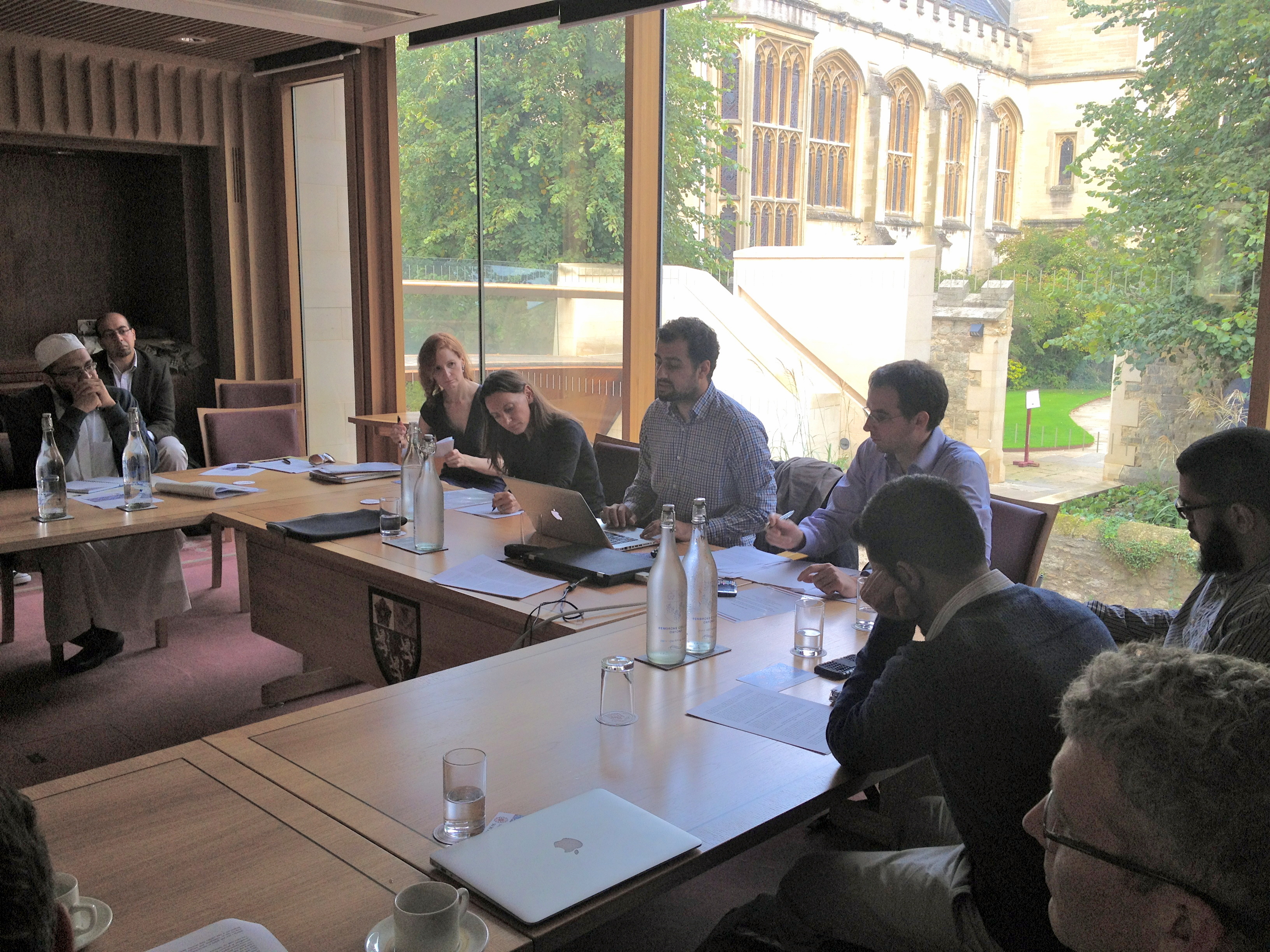Claiming Tradition Colloquium at Pembroke College, Oxford
By Nicolai Sinai
OXFORD—In doing modern Islamic intellectual history, it is easy to succumb to the temptation to concentrate one’s analytic efforts mainly on the specifically “modern” aspects of the thinkers and texts in question. In part, this may simply result from identifying one’s subject as “modern Islamic and/or Arabic thought,” extending, as it does, an implicit invitation to think primarily about the novel themes, ideas, and modes of communication that distinguish the intellectual production of the 19th and 20th centuries from earlier ages. In addition, apologetic presentations of modern values and ideas as already enshrined in the canonical sources of Islam often trigger predictable interventions by Western scholars—insisting, for example, that the Qur’anic reference to shūrā cannot really be equated with a call for democracy. However, to primarily position writers of the colonial and post-colonial periods against the background of contemporary events and modern Western thought entails the risk of viewing their moorings in the pre-modern tradition as superficial and rhetorical, or as precluding the exercise of any agency over it. Thus modern writers emerge either as strategically employing traditional concepts and ideas in order to serve as transparent guises for what are “really” imported Western notions, or as compulsively (and sometimes aggressively) parroting ancient traditions in an act of intellectual resistance.
Studying the intellectual history of the modern Islamic world, then, requires a difficult hermeneutical balancing act: without overlooking contemporary references, it is imperative to accord appropriate weight to the manifold and often complex ways in which Islam’s canonical texts and the pre-modern interpretive tradition are invoked, redirected and reconfigured—even where this does not directly contribute to locating an author on an ideal spectrum running from “modernism” to “Islamism.”
That such an approach can potentially facilitate a perception of modern Islamic texts and thinkers as more sophisticated and intellectually serious than they are often presented to be—this was the underlying conjecture throughout the colloquium “Claiming Tradition: Modern Re-Readings of the Classical Islamic Heritage,” which was held at Pembroke College, Oxford, on 27–28 September 2013.
After a keynote lecture delivered by Prof. Carole Hillenbrand dealing with classical and modern understandings of the term jihād, ten scholars based in the UK and Europe examined modern re-appropriations of pre-modern texts, genres, and figures. The topics discussed included modern Shi’ite legal theory (Robert Gleave) and Sunni hadith criticism (Christopher Melchert), modern contestations over the status of Abū Ḥanīfa (Ahmad Khan) and over the significance of Ibn Taymiyya’s anti-Mongol fatwas (John Hoover), 20th-century Qur’anic exegesis (Islam Dayeh, Nicolai Sinai, Karen Bauer), the use of classical Arabic poetry by Yemeni Jihadists (Elisabeth Kendall) and of the Islamic biographical and historiographical tradition in Zaynab Fawwāz’s (d. 1914) dictionary of famous women (Marilyn Booth), and finally the selection and arrangement of ʿUmar Sulaymān al-Ashqar’s (d. 2012) popular compilation of eschatological traditions (Christian Lange).
From different angles, all the papers illustrated the need for an in-depth mastery of pre-modern sources by students of the intellectual history of the modern Islamic world, as well as the intrinsic interest of modern debates even for scholars of classical Islam.
© International Qur’anic Studies Association, 2013. All rights reserved.

